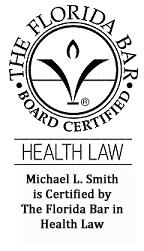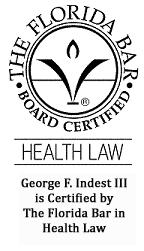By George F. Indest III, J.D., M.P.A., LL.M., Board Certified in Health Law
On June 8, 2020, the University of Florida (UF) announced via Twitter that a prospective student, who posted a racist message on social media, would not be admitted to attend the school in the fall. In effect, the school withdrew its offer to admit the prospective student. UF spokesman Steve Orlando says the university received multiple e-mails regarding its post of these facts. As a result of the investigation, the student is no longer a UF prospect.
Social networks provide students opportunities for communication, information/experience sharing, collaborative learning, professional interactions and outreach. However, they can also be dangerous if someone posts, publishes or republishes, threatening or otherwise unprofessional comments or content. Many applicants for colleges, professional schools, medical schools and even medical residencies and fellowships, do not realize that their social media presence and comments may have an impact on their chances of acceptance for or continuance in a program or school.
How Social Media Can Impact Medical Students and Admissions.
On social media sites, healthcare professionals, including medical students, should always represent themselves in a manner that reflects values of professionalism, integrity, acceptance of diversity, and commitment to ethical behavior. Since almost all colleges, institutions of higher learning, hospitals, health systems, and medically-related programs have policies and codes of conduct that prohibit any racist or discriminatory actions, conduct or activity, anyone in such programs or who is applying to such programs must always be careful and professional about such communications. Physicians and resident physicians must be aware that content posted may negatively affect their reputations among patients and colleagues. Basically, your actions online may also affect your medical career, especially for medical students, medical residents and fellows.
In one recent situation, a medical student says that the University of New Mexico gave him two options: change his Facebook post or get out. Click here to read more about it.
In another case, a whole class of resident physicians got in trouble and were temporarily suspended because of the posting of an allegedly profane and unprofessional photograph of a group of individuals from their class. The main complaint made was that the logo and name of the hospital was clearly shown on their lab coats.
In yet another case, a resident physician got into a lot of trouble with her program because she published a photograph of a COVID-19 patient in public media. The residency program claimed it was a HIPAA violation, even though you could not see the patient’s face and there was nothing to identify the patient, hospital, or program.
Regardless of First Amendment rights or the apparent silliness of the posting, don’t get caught in the trap of republishing it, commenting on it, forwarding it, or making it public in any way.
American Medical Student Association (AMSA) Guidelines on Social Media.
With the increase in popularity and usage of social media platforms, the American Medical Student Association (AMSA) published Guidelines for Medical Students and Physicians. Click here to read the guidelines in full.
All Potential and Current Health Professional Students, Medical Students, Resident Physicians and Fellows, Should Follow These Rules
By all means, follow the AMSA’s guidelines. But here are our additional rules we believe you should follow to stay out of trouble:
1. Nothing is confidential if you post it online anywhere, send it to anyone in an e-mail, a tweet or in any other posting, or if you tell anyone.
2. If you forward an offensive post to anyone, someone who will be offended will eventually see it, and will complain about it.
3. If you would never send such a posting to your Program Director, Dean, or attending physician, then don’t send it to anyone.
4. A re-tweet or forwarding of an offensive posting, comment, blog, e-mail or video, is the same as if you wrote it yourself (this is also true for the law of defamation).
5. Do not write, publish or re-publish criticisms of patients, your program or school, your attending physicians, your faculty, or your staff anywhere in public (or in private). See Rule #1 above.
Remember also, before you actually start a program, start a school, obtain a license, obtain certification or start a job, you have no protectable property interest. Therefore, you may have fewer or even no rights to challenge an adverse action. After you do start, you will have a protectable property interest and you will have certain rights that must be honored before adverse action can be taken against you.
To read about how our firm can assist medical students, residents, and graduates in a variety of legal matters, click here.
Contact a Health Care Attorney Experienced in the Representation of Medical Students, Interns, Residents and Applicants, Fellows and Those Involved in Graduate Medical Education.
The Health Law Firm and its attorneys represent interns, residents, fellows and medical school students in disputes with their medical schools, supervisors, residency programs and in dismissal hearings. We have experience representing such individuals and those in graduate medical education programs in various disputes regarding their academic and clinical performance, allegations of substance abuse, failure to complete integral parts training, alleged false or incomplete statements on applications, allegations of impairment (because of abuse or addiction to drugs or alcohol or because of mental or physical issues), because of discrimination due to race, sex, national origin, sexual orientation and any other matters.
To contact The Health Law Firm please call (407) 331-6620 or toll-free at (888) 331-6620 and visit our website at www.TheHealthLawFirm.com.
Sources:
Keating, Jennifer. “Social Media Guidelines for Medical Students and Physicians.” American Medical Student Association (AMSA). (September 15, 2016). Web.
Nelson, Sarah. “Florida student who wrote racist social media post won’t join UF.” Palm Beach Post. (June 10, 2020). Web.
“How Medical School Applicants Should Manage Social Media.” U.S. News. (June 11, 2018). Web.
About the Author: George F. Indest III, J.D., M.P.A., LL.M., is Board Certified by The Florida Bar in Health Law. He is the President and Managing Partner of The Health Law Firm, which has a national practice. Its main office is in the Orlando, Florida area. www.TheHealthLawFirm.com The Health Law Firm, 1101 Douglas Ave. Suite 1000, Altamonte Springs, FL 32714, Phone: (407) 331-6620
KeyWords: Graduate medical education (GME) defense attorney, international medical graduate attorney, graduate medical education defense lawyer, lawyer for medical students, medical resident physician attorney, residency program legal dispute, residency program litigation, medical school litigation, legal representation for medical residents, legal dispute with medical school, medical students legal counsel, disruptive physician attorney, impaired medical student legal counsel, impaired resident legal defense attorney, United States Medical Licensing Examination (USMLE) defense lawyer, USMLE defense attorney, National Board of Medical Examiners (NBME) defense counsel, Educational Commission for Foreign Medical Graduates (ECFMG) defense lawyer, ECFMG defense attorney, legal representation for USMLE investigations, legal representation for NBME investigations, legal representation for irregular behavior, irregular behavior defense attorney, irregular behavior defense counsel, The Health Law Firm reviews, reviews of The Health Law Firm attorneys, Philadelphia attorney for ECFMG hearing, Philadelphia lawyer for NBME hearing, Philadelphia legal counsel for USMLE hearing
“The Health Law Firm” is a registered fictitious business name of and a registered service mark of The Health Law Firm, P.A., a Florida professional service corporation, since 1999.
Copyright © 2020 The Health Law Firm. All rights reserved.






